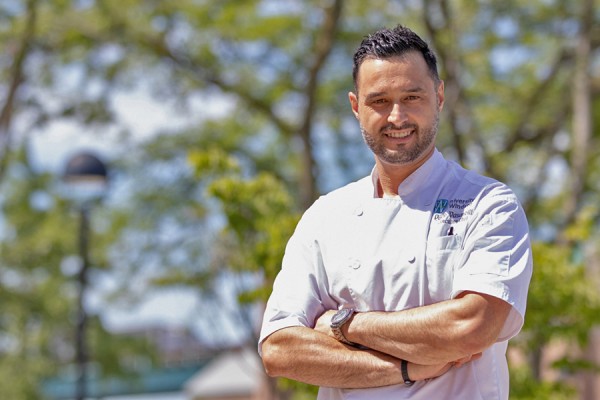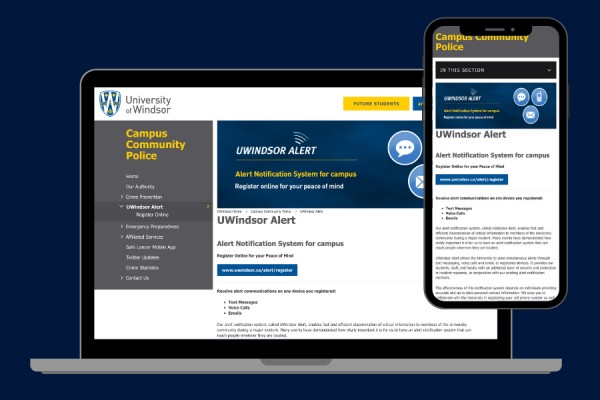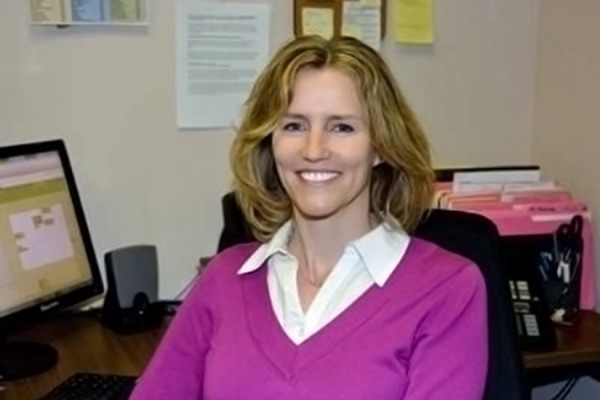 In UWindsor’s structures lab, one of the largest in Canada, Sreekanta Das’s team will develop a loadbearing, narrow, concrete beam that fits with prefabricated insulated light-gauge steel wall panels.
In UWindsor’s structures lab, one of the largest in Canada, Sreekanta Das’s team will develop a loadbearing, narrow, concrete beam that fits with prefabricated insulated light-gauge steel wall panels.
A UWindsor engineering professor has partnered with local industry to develop structures using corrosion-resistant building rebar made from volcanic rock.
“Most buildings in Canada are constructed using concrete beams and other concrete elements with embedded steel reinforcement bars,” says Sreekanta Das, a civil engineering professor.
“The problem with steel rebar is that the material is susceptible to corrosion and can lead to the development of cracks in reinforced concrete buildings, resulting in reduced service life of the building and safety concerns.”
Dr. Das has been working with MEDA Engineering & Technical Services on varying methods of concrete rehabilitation and reinforcement for more than a decade using rebar, mesh, fabric, and fibre. The results of this exhaustive research have led to a partnership with Bear Construction and Engineering Inc. and MEDA Engineering & Technical Services TXON GRP — the company’s materials division — to develop a new technology for designing and constructing narrow pre-cast concrete beams using rebars of basalt fibre reinforced polymer (BFRP).
“MEDA has enjoyed a long-standing relationship with the Faculty of Engineering and this project further solidifies our commitment to the department and its many great professors and students,” says MEDA president David Lawn.
The $140,000 project is funded by the Natural Sciences and Engineering Research Council of Canada (NSERC), with cash and in-kind investments from industry partners.
BFRP rebars are corrosion resistant and do not need any protecting concrete cover. Made from a volcanic rock called basalt, the rebars are stronger, lighter, and environmentally friendly. They can also easily be incorporated into the modular construction process — a fast and economical approach to constructing buildings — thanks mainly to an off-site assembly system under controlled conditions, requiring less time to construct the panels with less material waste.
In UWindsor’s structures lab, one of the largest in Canada, Das’s team will develop a loadbearing, narrow, concrete beam that fits with prefabricated insulated light-gauge steel wall panels. The prefabricated wall panels are six inches wide and unable to accommodate the size of concrete beams made with traditional steel reinforcements.
“Steel rebars cannot be used for making such narrow beams since about 50 per cent of the beam's width, approximately three inches, is required as a corrosion cover for the steel rebars,” Das says. “The implementation of the modular construction method will also help the environment by reducing the carbon footprint by using less concrete than traditional methods.”
The non-conductive, non-corrosive materials have the similar rate of expansion as concrete and 250 per cent greater tensile strength than steel. Bear Construction and MEDA plan to adopt the new technology in future buildings and other infrastructure project designs.
Lawn says the MEDA team is looking forward to developing further advances in the construction and rehabilitation of concrete structures with the University of Windsor and Bear Construction.
“Both companies are committed to supporting this research as it provides many students with an opportunity to contribute to challenging and cutting-edge technology,” he says.
The project is funded through an NSERC Alliance Grant, which encourages university researchers to collaborate with private, public, or not–for–profit sector organizations to generate new knowledge and accelerate the application of research results.
—Kristie Pearce








